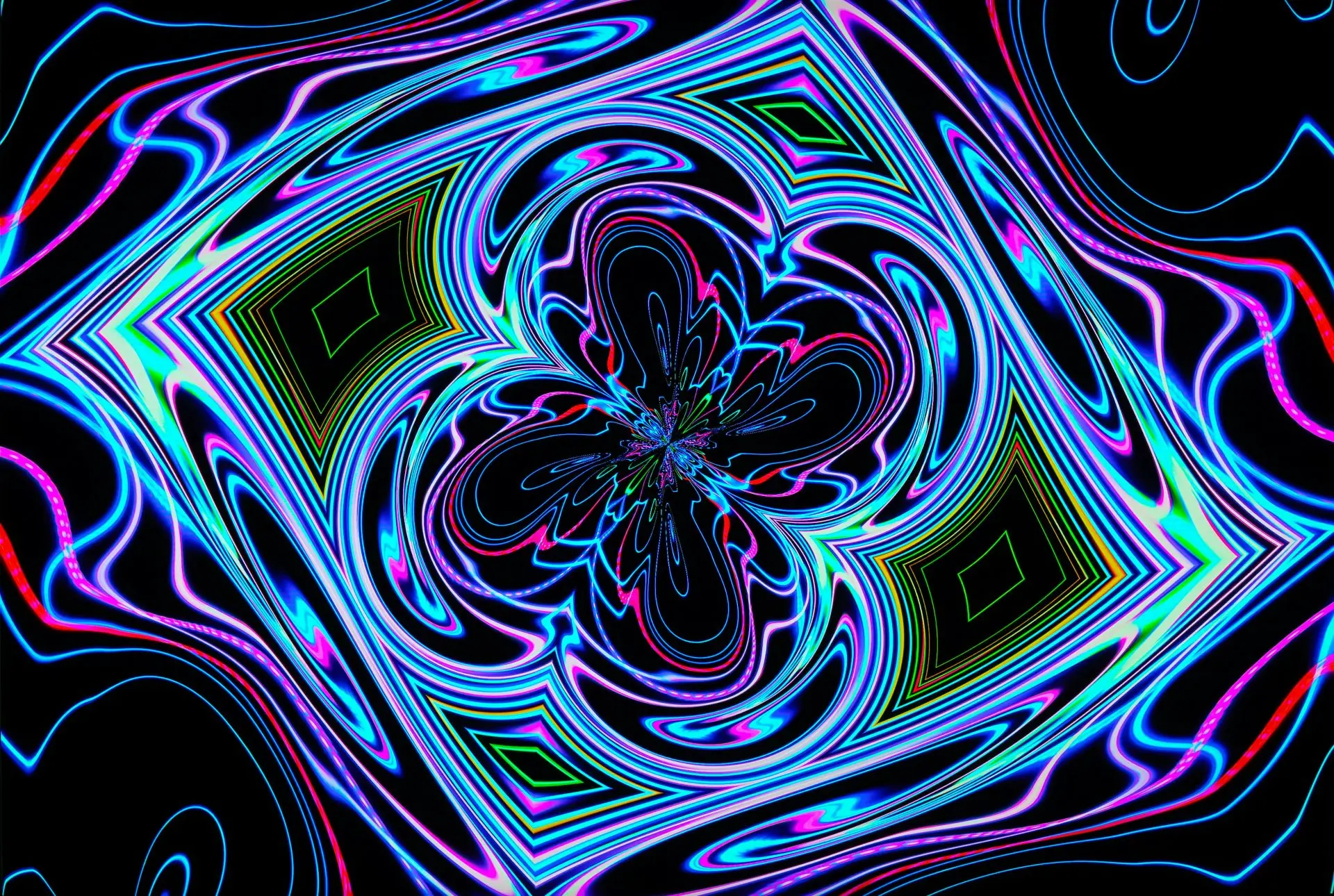Wu Wei: The Art of Effortless Action

Looking for more amazing products? Check out our online store and explore our collection here! Happy shopping!
Before diving in, please note: This post is for informational purposes only. If you’d like to know more about how we approach topics, feel free to check out our friendly Disclaimer Page.
Hey there, amazing readers! 
We’re committed to delivering quality posts, and your support (even just sticking around despite the ads) means everything to us. So, bear with us, and thanks for helping us keep the good vibes rolling. Now, on to the fun stuff!
TRANSLATE BUTTON AT THE END OF THE ARTICLE
A Quick Overview
Wu Wei, often translated as "effortless action" or "non-action," is a central concept in Taoist philosophy that emphasizes the natural way of being in harmony with the flow of life.
It is about acting spontaneously and effortlessly, without force or struggle, in alignment with the Tao, which is the underlying principle of the universe.
By practicing Wu Wei, individuals can cultivate inner peace, balance, and harmony in their lives, allowing things to unfold naturally without resistance.
This article will delve into the origins, principles, and applications of Wu Wei, as well as its benefits and overcoming obstacles through this way of being.
Exploring the Concept of Wu Wei
Wu Wei is the art of effortless action that involves letting go of the ego and allowing things to happen naturally without interference.
It is not about being passive or inactive but rather about acting in a way that is in harmony with the natural order of things.
Wu Wei is like flowing water that moves around obstacles effortlessly, finding the path of least resistance.
It is about being present in the moment, fully engaged in what you are doing, without overthinking or forcing outcomes.
By practicing Wu Wei, individuals can tap into their inner wisdom and intuition, making decisions based on what feels right rather than what the mind dictates.
Origins and History of Wu Wei
The concept of Wu Wei originated in ancient China, particularly in Taoist philosophy, which dates back to the 6th century BCE.
It is attributed to the legendary figure Laozi, the author of the Tao Te Ching, a fundamental Taoist text.
Laozi emphasized the importance of living in harmony with the Tao, the unnamable and ineffable principle that underlies all existence.
The idea of Wu Wei has also been influenced by other Chinese philosophies, such as Confucianism and Buddhism, but it remains a central tenet of Taoism.
Over the centuries, Wu Wei has been widely studied and practiced by scholars, philosophers, and practitioners seeking to find balance and harmony in their lives.
Understanding the Taoist Philosophy
Taoism is a spiritual tradition that emphasizes living in harmony with the Tao, which is often described as the way, the path, or the flow of the universe.
Taoists believe that everything is interconnected and that the natural world operates according to its own rhythms and patterns.
By aligning oneself with the Tao, individuals can cultivate balance, tranquility, and spontaneity in their lives.
Taoist philosophy also emphasizes simplicity, humility, and the acceptance of change and impermanence.
The practice of Wu Wei is a manifestation of these principles, allowing individuals to let go of attachment, control, and resistance, and to embrace the natural flow of life.
The Principles of Effortless Action
Wu Wei is guided by several key principles that inform how individuals can practice effortless action in their daily lives:
Spontaneity: Acting spontaneously and without preconceived notions or expectations.
Naturalness: Allowing things to unfold naturally, without force or manipulation.
Non-Interference: Refraining from imposing one’s will or control on external circumstances.
Harmony: Seeking to align one’s actions with the flow of the universe and the rhythm of nature.
Adaptability: Being flexible and open to change, adjusting to new circumstances with ease.
By embodying these principles, individuals can cultivate a state of flow and harmony, where actions occur effortlessly and outcomes unfold organically.
Applying Wu Wei in Daily Life
Practicing Wu Wei in daily life involves being mindful, present, and attuned to the natural flow of events.
It requires letting go of attachment to outcomes, surrendering the need for control, and trusting in the wisdom of the universe.
Individuals can apply Wu Wei in various aspects of their lives, such as:
Making Decisions: Trusting one’s intuition and inner guidance when making choices.
Relationships: Allowing relationships to evolve naturally, without trying to force or manipulate them.
Work: Focusing on the process rather than the end result, letting tasks unfold at their own pace.
Creativity: Allowing inspiration to flow freely, without self-criticism or perfectionism.
By practicing Wu Wei in these areas, individuals can cultivate a sense of ease, flow, and fulfillment in their lives.
Achieving Harmony through Non-Action
Contrary to the Western notion of action as effort and striving, Wu Wei teaches that true action arises from a state of non-action or effortless effort.
It is not about doing nothing but about aligning oneself with the natural order of things and allowing actions to arise spontaneously.
By letting go of the need to control outcomes and surrendering to the flow of life, individuals can achieve a state of harmony and balance.
In this state, they can respond to situations with wisdom, grace, and ease, rather than reacting impulsively or forcefully.
Non-action does not mean passivity or resignation but rather a state of receptivity, where one can attune to the subtle cues of the universe and act in accordance with the greater good.
Letting Go of Control and Struggle
One of the key challenges in practicing Wu Wei is letting go of the ego’s need for control and the mind’s tendency to struggle against the natural flow of life.
It requires surrendering the illusion of separateness and embracing the interconnectedness of all things.
By relinquishing the need to control outcomes and trusting in the wisdom of the universe, individuals can free themselves from the burden of excessive effort and resistance.
Letting go of control does not mean abandoning responsibility or agency but rather recognizing the limits of one’s influence and accepting what is beyond one’s control.
Through the practice of Wu Wei, individuals can release the grip of fear, doubt, and insecurity, and find a sense of peace and surrender in the face of uncertainty.
Balancing Wu Wei with Responsibility
While Wu Wei advocates for non-action and effortlessness, it does not absolve individuals of their responsibilities or obligations in the world.
Instead, it encourages a balanced approach that integrates spontaneity with practicality, intuition with rationality, and flow with structure.
Balancing Wu Wei with responsibility involves:
Discernment: Knowing when to act and when to refrain from action, based on intuitive wisdom.
Integrity: Acting in alignment with one’s values, principles, and ethics, even in the midst of challenges.
Accountability: Taking ownership of one’s actions and decisions, accepting the consequences of one’s choices.
By striking a balance between Wu Wei and responsibility, individuals can navigate the complexities of life with grace, integrity, and wisdom.
Cultivating Inner Peace and Balance
The practice of Wu Wei is a powerful tool for cultivating inner peace and balance amidst the chaos and busyness of modern life.
By letting go of the need for control, attachment, and striving, individuals can find a sense of calm, clarity, and centeredness within themselves.
Cultivating inner peace and balance through Wu Wei involves:
Mindfulness: Being present in the moment, fully engaged in what you are doing, without distractions or judgments.
Acceptance: Embracing things as they are, without resistance or aversion, and finding peace in the present moment.
Self-Compassion: Treating oneself with kindness, understanding, and forgiveness, rather than self-criticism or harsh judgment.
Through the practice of Wu Wei, individuals can access a deep wellspring of inner peace and balance that transcends external circumstances and conditions.
Benefits of Practicing Wu Wei
There are numerous benefits to practicing Wu Wei in one’s daily life, including:
Reduced Stress: By letting go of the need for control and attachment to outcomes, individuals can experience a greater sense of ease and relaxation.
Enhanced Creativity: By tapping into the flow of the universe, individuals can access a wellspring of inspiration and innovation.
Improved Relationships: By allowing relationships to unfold naturally, without force or manipulation, individuals can cultivate deeper connections and understanding with others.
Increased Resilience: By surrendering to the flow of life, individuals can adapt to change and challenges with grace and fortitude.
Greater Joy and Fulfillment: By aligning with the Tao and acting in harmony with the natural order of things, individuals can experience a profound sense of joy, purpose, and fulfillment in their lives.
Overall, practicing Wu Wei can lead to a more harmonious, balanced, and fulfilling existence.
Overcoming Obstacles with Wu Wei
While practicing Wu Wei can bring numerous benefits, there are also obstacles and challenges that individuals may encounter along the way.
Some common obstacles to practicing Wu Wei include:
Attachment to Outcomes: Letting go of the need for control and surrendering to the flow of life can be difficult for individuals who are attached to specific outcomes or expectations.
Fear of Uncertainty: Embracing the unknown and trusting in the wisdom of the universe can be daunting for those who crave certainty and predictability.
Ego Resistance: The ego’s need for validation, recognition, and success can hinder the practice of Wu Wei, as it often thrives on effort, struggle, and achievement.
To overcome these obstacles, individuals can cultivate self-awareness, mindfulness, and self-compassion, allowing them to navigate the challenges of practicing Wu Wei with grace and resilience.
Embracing the Flow of Life with Wu Wei
The essence of Wu Wei is about embracing the flow of life, surrendering to the natural order of things, and aligning with the Tao.
By letting go of control, attachment, and resistance, individuals can open themselves up to a world of infinite possibilities, creativity, and joy.
Embracing the flow of life with Wu Wei involves:
Trusting in the Process: Believing in the inherent wisdom and intelligence of the universe to guide and support you.
Letting Go of Expectations: Releasing the need for specific outcomes and embracing the beauty of uncertainty and spontaneity.
Surrendering to the Moment: Being fully present in each moment, allowing things to unfold naturally, without interference or manipulation.
Through the practice of Wu Wei, individuals can learn to dance with the rhythms of life, moving with grace, fluidity, and ease, and experiencing the profound beauty and wonder of existence.
Conclusion
Wu Wei, the art of effortless action, offers a profound and transformative way of being in the world.
By aligning with the Tao, letting go of control, and surrendering to the flow of life, individuals can cultivate inner peace, balance, and harmony.
Through the practice of Wu Wei, individuals can experience a greater sense of joy, creativity, and fulfillment, and navigate the challenges of life with grace, resilience, and wisdom.
As Laozi once said, "The softest things in the world overcome the hardest things.
Non-being can enter where there is no space." In the spirit of Wu Wei, may we all learn to embrace the flow of life, surrender to the wisdom of the universe, and live in harmony with the Tao.

The Enlightenment Journey is a remarkable collection of writings authored by a distinguished group of experts in the fields of spirituality, new age, and esoteric knowledge.
This anthology features a diverse assembly of well-experienced authors who bring their profound insights and credible perspectives to the forefront.
Each contributor possesses a wealth of knowledge and wisdom, making them authorities in their respective domains.
Together, they offer readers a transformative journey into the realms of spiritual growth, self-discovery, and esoteric enlightenment.
The Enlightenment Journey is a testament to the collective expertise of these luminaries, providing readers with a rich tapestry of ideas and information to illuminate their spiritual path.
Our Diverse Expertise
While our primary focus is on spirituality and esotericism, we are equally passionate about exploring a wide range of other topics and niches 

To ensure we provide the most accurate and valuable insights, we collaborate with trusted experts in their respective domains 
Our blog originally focused on spirituality and metaphysics, but we’ve since expanded to cover a wide range of niches. Don’t worry—we continue to publish a lot of articles on spirituality! Frequently visit our blog to explore our diverse content and stay tuned for more insightful reads.
Hey there, amazing reader! 
Check out our store here and take a peek at some of our featured products below! Thanks for being awesome!











